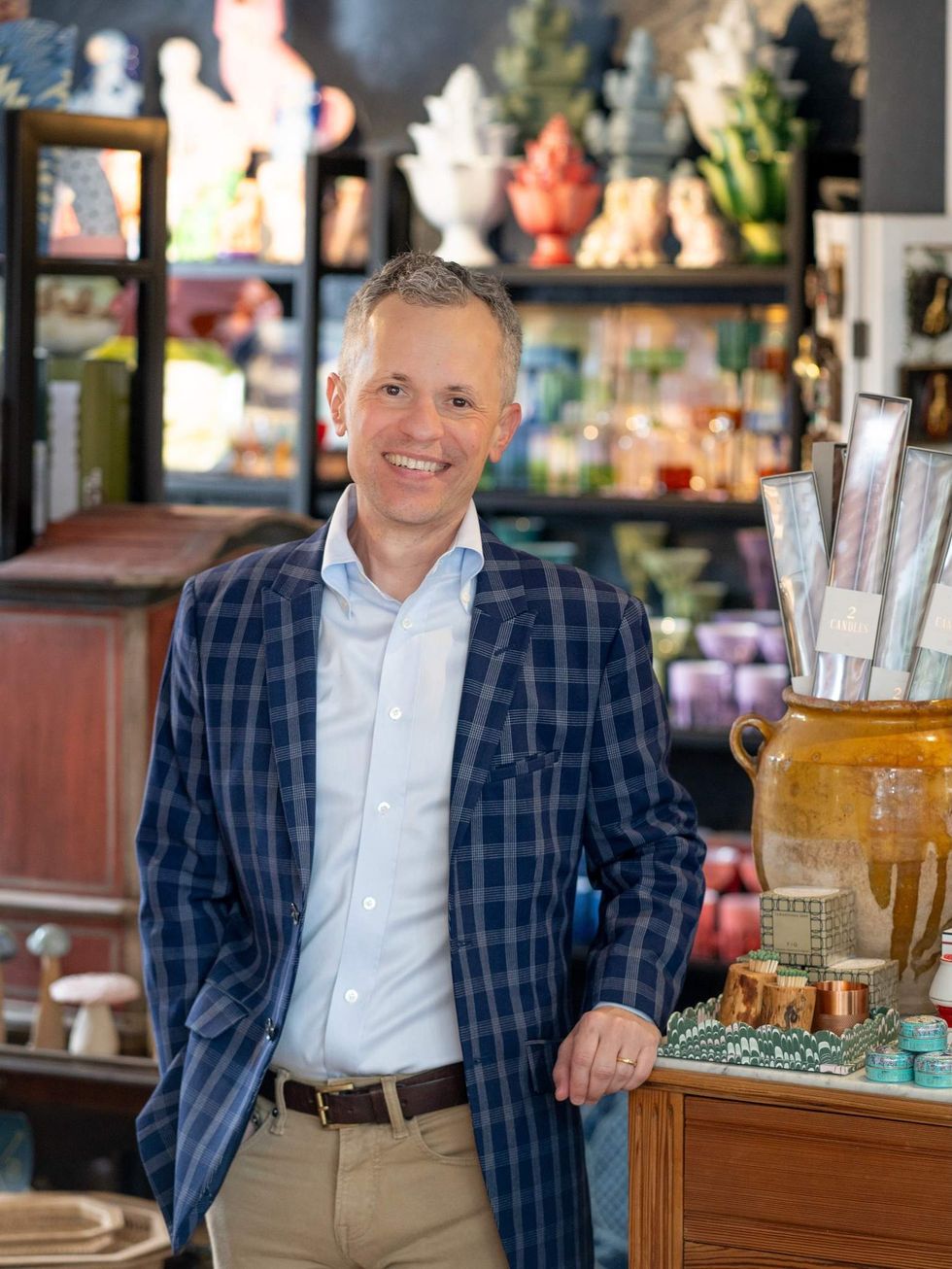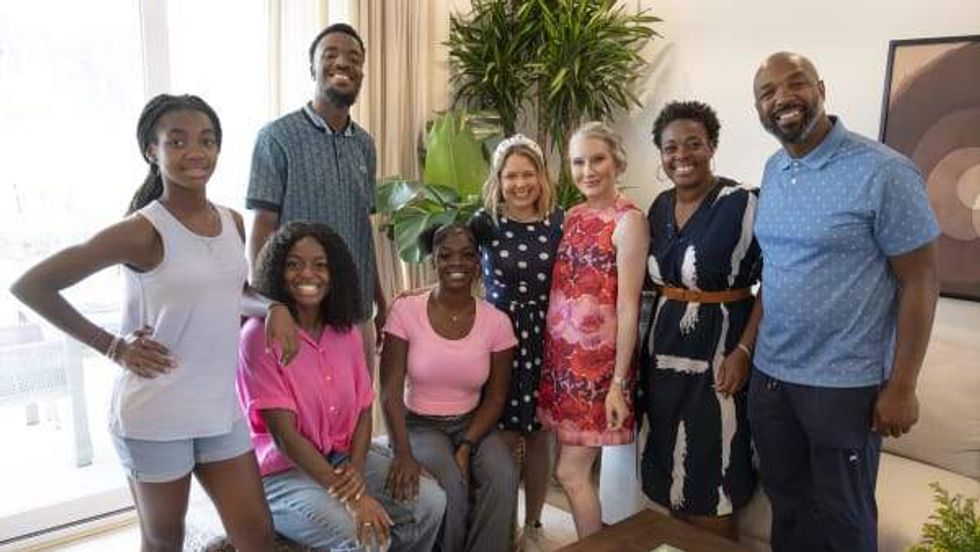Angela Blanchard's Mission
Baker-Ripley Neighborhood Center makes a community feel at home: "GulftonGhetto" sees hope
 Baker-Ripley Neighborhood CenterCourtesy photo
Baker-Ripley Neighborhood CenterCourtesy photo Neighborhood Centers CEO and president Angela Blanchard at her Tedx talk.Photo by Ed Schipul
Neighborhood Centers CEO and president Angela Blanchard at her Tedx talk.Photo by Ed Schipul
A visit to the Baker-Ripley Neighborhood Center in Gulfton has a way of changing minds and opening eyes to just how much a neighborhood center can affect a community's sense of home. This center is the newest addition to the Neighborhood Centers Inc. (NCI) system, and the campus serves as a model for community centers throughout the nation.
It's difficult to understand exactly what a neighborhood center can accomplish, and how it can function, without seeing the place firsthand. I was taken aback by what I saw.
Baker-Ripley Neighborhood Center is no bland building with dated activities — it's a cluster of colorful buildings on an un-gated campus, in the middle of what used to be known as the "Gulfton Ghetto." NCI helped change that.
There is an award-winning elementary school on-site, as well as a community garden and a Legacy healthcare branch, a library and a computer lab. An outdoor stage for cultural performances, a credit union and a tax center, where volunteers provide free tax assessments for qualifying community members, meeting rooms, a gymnasium and three studios for artists in residence also fill the complex.
A Magic Bus makes the rounds between area amenities and grocery stores. The surrounding neighborhood is densely populated and apartment-heavy, but ample green space at the center makes up for the lack of yards.
Throughout the day, children play in the courtyards. Community members gather for English as a Second Language (ESL) courses, computer literacy training and enrichment classes. People stop by the Promise Credit Union to open their first bank account. Others seek out counselors for immigration services. The activity is non-stop, and there seems to be no end to the classes and the resources offered.
And Baker-Ripley is just one of dozens of NCI centers around the city.
An innovative technique
"We go where we're invited, and we do what we're asked to do," says Angela Blanchard, NCI president and CEO.
This is how it happened in Gulfton: Citizens came to NCI, saying that they wanted a Ripley House — which was, at the time, the ultimate example of what a community center could be.
But the approach to Baker-Ripley was completely different from years past, according to Blanchard.
"We are on a relentless search for strengths," Blanchard says. "The old way of working with low-income families was to treat them like they were different from the rest of us, and that what defined them was what was broken. We adopted — now almost eight years ago — a new way of working, and we said, 'That's the end of that.' "
In the past, organizations went into a neighborhood and enumerated all of the things that are wrong: high school dropouts, poverty, crime rates and high teenage pregnancy rates. Western society is extremely problem-and-solution based, but quick fixes can't make up for a destroyed foundation.
NCI now takes an asset-based approach which it applies, exhaustively and comprehensively, to each element of the community and the center itself. It searches for what is already working within a neighborhood — what's life giving and affirming — and then expands upon that. Because, as Blanchard says, "You can't build on broken."
The organization has also combined the community's strengths, where others tend to focus on just one. If an organization pours resources and energy into a school, but the housing and transportation and health care just aren't there to reinforce, then the school will ultimately fail.
"The big breakthrough that people are seeing in NCI is that we have advanced the integration in both services and activities in a neighborhood, especially in Baker-Ripley," Blanchard says. "It's been an enormous pleasure to introduce people from the rest of this country to Houston through the lens of Baker-Ripley and this neighborhood."
A compassionate CEO
Blanchard joined the board of Neighborhood Centers Inc. 25 years ago, when she moved to Houston. She immediately fell in love with the 100-year-old agency.
"At that time, the agency was frankly kind of fragile and struggling," Blanchard says. "We had taken on some of the tough challenges in the city but we needed the organization itself to be stronger so that we could evolve and grow with Houston."
Since taking the helm as president and CEO in 1998, Blanchard has made enormous changes in the organization, growing the operating budget from $40 million to more than $220 million, and achieving national recognition for innovations and leadership. Blanchard and her team have pioneered the idea of a multi-purpose center and transformed the capabilities of a community.
Most recently, Blanchard was chosen from leaders of national non-profit agencies as the recipient of the ARAMARK Building Community Leadership Award, for her risk-taking attitude and for her record of successful solutions. She received the award — along with a $40,000 grant for NCI — at the United Neighborhood Centers of America (UNCA) and Alliance Conference in Washington D.C. on Tuesday.
Blanchard and the Neighborhood Centers team love a pat on the back, but they're reluctant to bask too long in any recognition.
"All we think about is how much more we have to do," Blanchard says.
If you'd like to get involved with NCI, visit their website for donation resources and volunteer opportunities (the tax center is currently accepting applications for preparers, translators and intake specialists), or feel free to stop by a campus for a tour!





